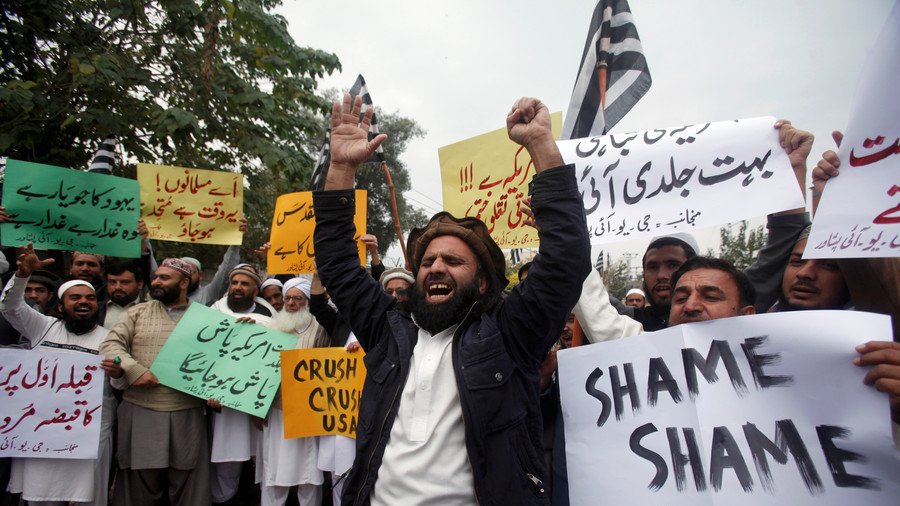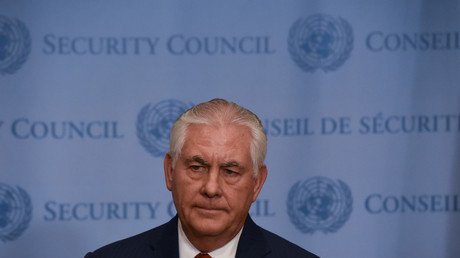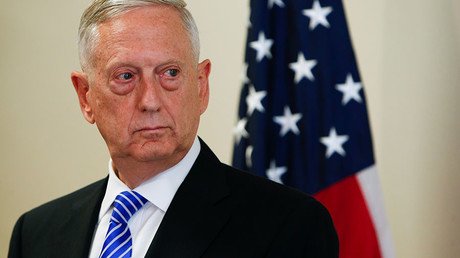'US scapegoating Pakistan over its own Afghanistan failure'

Washington is mistaken if it hopes to solve the problem in Afghanistan by placing blame on Pakistan, experts have told RT. If someone should want stability in Afghanistan, it is Pakistan.
Islamabad summoned the US ambassador on Tuesday over a tweet posted by President Donald Trump on New Year's Day. In his first Twitter salvo of 2018, the American president accused Pakistan of sheltering terrorists from Afghanistan, and passing on to the US “nothing but lies and deceit” in return for “33 billion dollars in aid.”
The United States has foolishly given Pakistan more than 33 billion dollars in aid over the last 15 years, and they have given us nothing but lies & deceit, thinking of our leaders as fools. They give safe haven to the terrorists we hunt in Afghanistan, with little help. No more!
— Donald J. Trump (@realDonaldTrump) January 1, 2018
READ MORE: No fresh start? Trump lashes out at Pakistan, Iran in his first 2018 tweets
Military analyst Kamal Alam told RT the loss of American aid won’t pose a significant problem for Pakistan, since other players are becoming more prominent in the region.
RT:What’s your take on Donald Trump's latest tweet?
Kamal Alam: He’s made a few of these tweets before, last year, so it is not a complete surprise. However, the timing of it might be – given there might have been more pressing issues for the Americans. But I think they seem to be taking a very hard line on Pakistan and blaming Pakistan for failure in Afghanistan. Because the US policy is not working in Afghanistan, Pakistan becomes a good scapegoat for US failures.
RT:What do you think the result would be if the US withheld military aid to Pakistan?
KA: I think it won't be as significant, because US military aid to Pakistan used to be much more than it is now. It is only around $250 million. It used to be close to $2 billion. So this aid is not that significant in Pakistan's overall defense strategy. China is the biggest player in Pakistan. There are other countries like Turkey and Russia that are now becoming very close to Pakistan militarily. Overall the US influence will not decline. However, if this aid is cut it won’t have a massive impact on Pakistan, because it is looking elsewhere for its future.
‘We’ll throw his aid in his face:’ #Pakistanis slam #Trump for his tweet as US halts $255mn aid https://t.co/XyRP9IEXjrpic.twitter.com/IlRBsUdyPW
— RT (@RT_com) January 2, 2018
RT: Would Washington seriously consider that, or is Trump's tweet more about diplomatic brinkmanship?
KA: I think it is more about diplomatic brinkmanship, because the US military really needs Pakistan. If you look at how many American generals travel to Islamabad every month – it’s more than most countries in the region. At any given one time you’ll have the head of the US central command in Islamabad or the ISAF (International Security Assistance Force) commander from Afghanistan, or the head of the US Special forces. They really need the Pakistani military to work with them on the border, as well as intelligence sharing. So they can’t do without Pakistan in this war. The White House, Trump and his close advisors might tweet or say statements publically as Mike Pence did in Kabul as well two or three weeks ago. But the reality on the ground is that they need Pakistan and they can’t do without Pakistan.
Retired Pakistani army general Talat Masood has compared US policy on Pakistan and Afghanistan to that which it employed in Vietnam.
RT:How do you interpret Donald Trump's tweet?
Talat Masood: I think he is just trying to sort of express his frustrations. In fact, he is trying to place blame on Pakistan – to sort of shift the blame on exactly what the American policy has failed to do. They think that by placing blame on Pakistan they are going to solve the problem of Afghanistan – they are sadly mistaken. This is exactly the same policy that they pursued in Vietnam and they failed; the same policy that they have been pursuing in Afghanistan, where they have completely failed and having failed in the policy in Afghanistan, they try to place the blame on Pakistan. As far as Pakistan is concerned it is in the foremost interest of Pakistan to have stability in Afghanistan.
Islamabad summons US envoy, calls emergency meetings after Trump’s 'no more' tweet https://t.co/T0jfjcYEhh
— RT (@RT_com) January 2, 2018
If there is one country which is most adversely affected by the poor conditions or instability in Afghanistan, it's Pakistan. How on Earth do they think that Pakistan would like to destabilize Afghanistan and not contribute towards efforts that would really stabilize and make Afghanistan a peaceful country? The problem is that, firstly, America thinks that it can win this war through its might and that will not succeed. It didn’t succeed in the past in any country with its mighty force, it will not succeed in Afghanistan.
RT: Do such statements diminish Pakistan's role in combating terrorism, or is the country really not doing enough?
TM: If you recall, Pakistan’s military has lost nearly 3,000 of its soldiers. And nearly 70,000 people in Pakistan have lost their lives as a consequence of fighting terrorism. What more do they want? Is there any single country which has suffered as much as Pakistan in trying to fight terrorism, which is actually brought to the region by the US, in fighting first the so-called Afghan jihad, and then trying to formulate a policy and fighting in Afghanistan against the Taliban after the events of 9/11.
It is the fallout from all these policies that Afghanistan today is suffering... Afghanistan itself does not have a stable government. Moreover, 13 percent of the area in Afghanistan, the Americans themselves say officially, is not under the control of the Afghan government and more than 30 percent is disputed areas. So if that be the case, why should anyone use Pakistan’s territory to launch attacks in Afghanistan?














